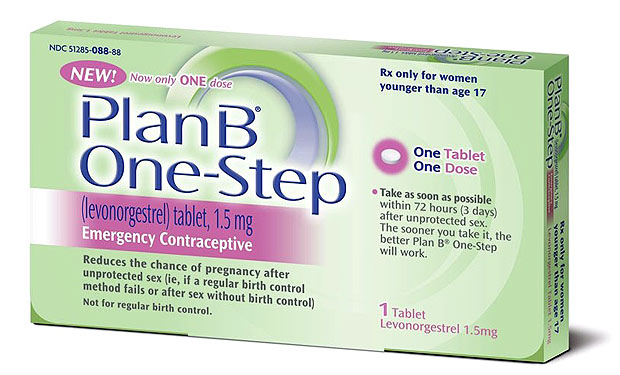Preventing unplanned pregnancy is a concern for every adult. There are numerous sayings posted online and on social media about the interactions between plan b and antibiotics. There is actually no scientific research to back up the claims. But if you find that your birth control pills are not as effective as usual or you need to take certain new medications, inform your doctor and consult about the possible interactions between the medicine and your birth control pills.

Will Plan B Work If You Are on Antibiotics?
Research shows that only one antibiotic, called rifampcin, can make birth control pill less effective. Rifampicin is an antibiotic that is used in treating tuberculosis. Other generic drugs in the category include Rimactane and Rifadin.
Other antibiotics do not have any significant effect on the hormonal birth control. The efficacy of the birth control pill range from 95-99%, and research shows that there is no major difference whether a woman on the pill takes antibiotics or not. A partner taking antibiotics will not affect the efficacy of the birth control pills neither.
Can Other Medications Interact with Plan B?

Although there is no severe interactions between plan b and antibiotics, levonorgestrel may interact with various other drugs, including:
|
adapalene |
heparin |
|
apixaban |
isotretinoin |
|
aprepitant |
lamotrigine |
|
atazanavir |
low molecular weight heparins (e.g., dalteparin, enoxaparin, tinzaparin) |
|
barbiturates (e.g., pentobarbital, Phenobarbital) |
mifepristone |
|
boceprevir |
mycophenolate |
|
oxcarbazepine |
clobazam |
|
prucalopride |
cholestyramine |
|
cyclosporine |
topiramate |
|
dabigatran |
selegiline |
|
bosentan |
nevirapine |
|
dexamethasone |
tocilizumab |
|
exenatide |
ulipristal |
|
St. John's wort |
thalidomide |
|
felbamate |
tranexamic acid |
|
voriconazole |
fosaprepitant |
|
fosphenytoin |
warfarin |
If you are taking these medications, you should consult your physician for further advice. The physician may tell you to:
- change medication
- stop taking one of the medicines
- change the routine or the dosage of the medication
- change both medication
Any interaction between two medications does not mean that you must stop taking them. However, in situations where there is a serious adverse side effect, go to the hospital immediately. Medications that are not listed in the table above may also interact with the plan B. Therefore, always remember to tell your doctor or the pharmacist about the medications you are taking for him or her to make a sound decision on the best medication you can take.
More Myths About Emergency Contraception
Apart from the interactions between plan b and antibiotics, there are other unexplained myths circulating the emergency contraception. Here are ten myths and facts about Plan B or emergency contraception.
Myth 1: Emergency contraception can cause abortion.
Fact: emergency birth control or EC pills do not in any way cause abortion. The pill has an efficacy of 52-94% every time it is used correctly in preventing any unwanted pregnancy. The pill does not induce or cause an abortion, but it prevents the release of ova and the interaction of the spermatozoa with the eggs. The pills do not work when a fertilized egg is already attached to the wall.
Myth 2: Emergency contraception has horrifying side effects.
Fact: Research shows that emergency contraception does not have any significant side effects. Although the pill may have a higher concentration than the regular birth control pills, they do not have more serious side effects. But mild side effects are seen, such as tiredness, breast tenderness, headache, dizziness, and nausea.
Myth 3: Emergency contraception prevents pregnancy for a long time.
Fact: The morning after pill can't guarantee that you won't get pregnant if you continue having unprotected sex for days after taking the pill. The EC only works when it is taken after sex.
Myth 4: Alcohol or drugs in the bloodstream mean you can't take emergency contraception.
Fact: Even a hard partying at night should not stop you from taking the emergency pill. Tobacco or alcohol and other drugs in the system do not affect the effectiveness of the emergency contraceptive.
Myth 5: Emergency contraception can be taken any time after having unprotected sex and can still be effective.
Fact: It is recommended that you take the pill within 72 hours after having unprotected sex. At this stage, the pill is around 89% effective. It would be better if you can take it within 24 hours when the success rate is about 95%.
Myth 6: It's okay to use emergency contraception instead of regular birth control.
Fact: There are numerous reasons why you should not rely on the EC pills as the main protection against unwanted pregnancy. Emergency pills are not effective as the regular birth control pills. Also, they are much more expansive than the regular birth control pills.
Myth 7: As long as it's taken early, the pill has the same effect on everyone.
Fact: Body mass index plays a very crucial role in determining the levels of hormones and studies show that women with a body mass index higher than 25 are more likely to get pregnant than women with lower BMI than 25. Overweight women have a higher likelihood of getting pregnant even after taking the pill.
Myth 8: Emergency contraception is hard to get.
Fact: Getting emergency pill is easier than it was a decade ago. The medication has been approved by FDA in 2013 as OTC medication. Any females who are older than 15 can buy it at local pharmacy stores.
